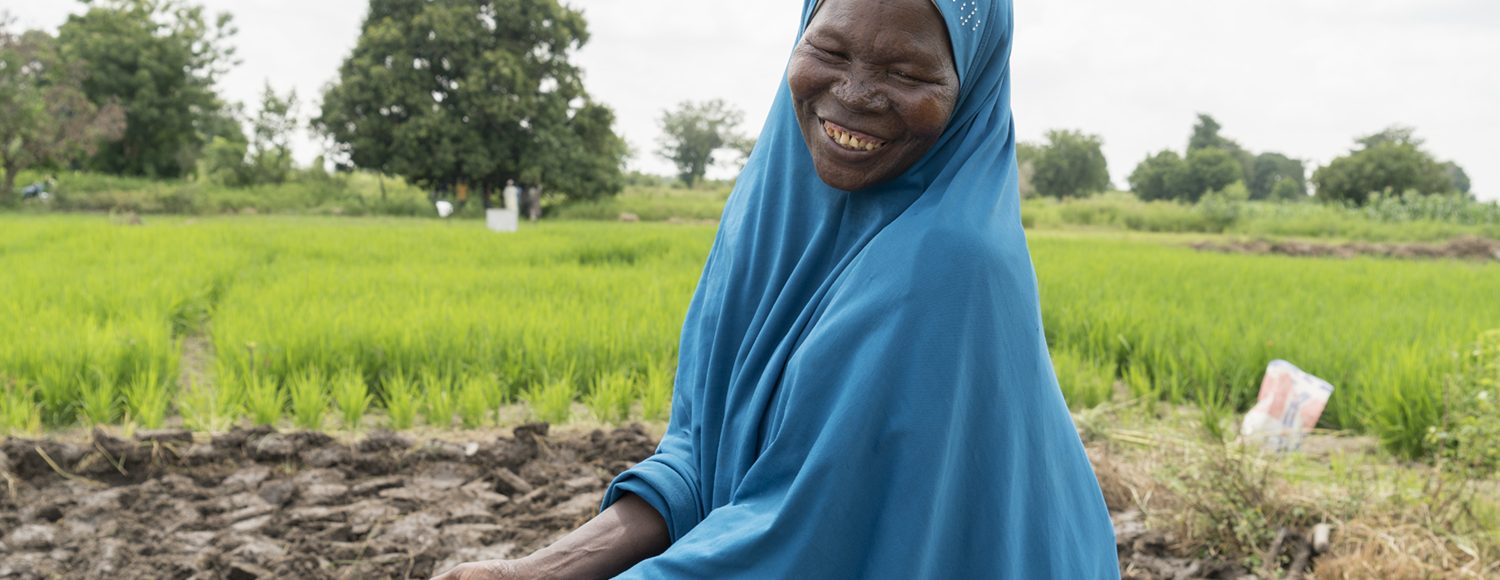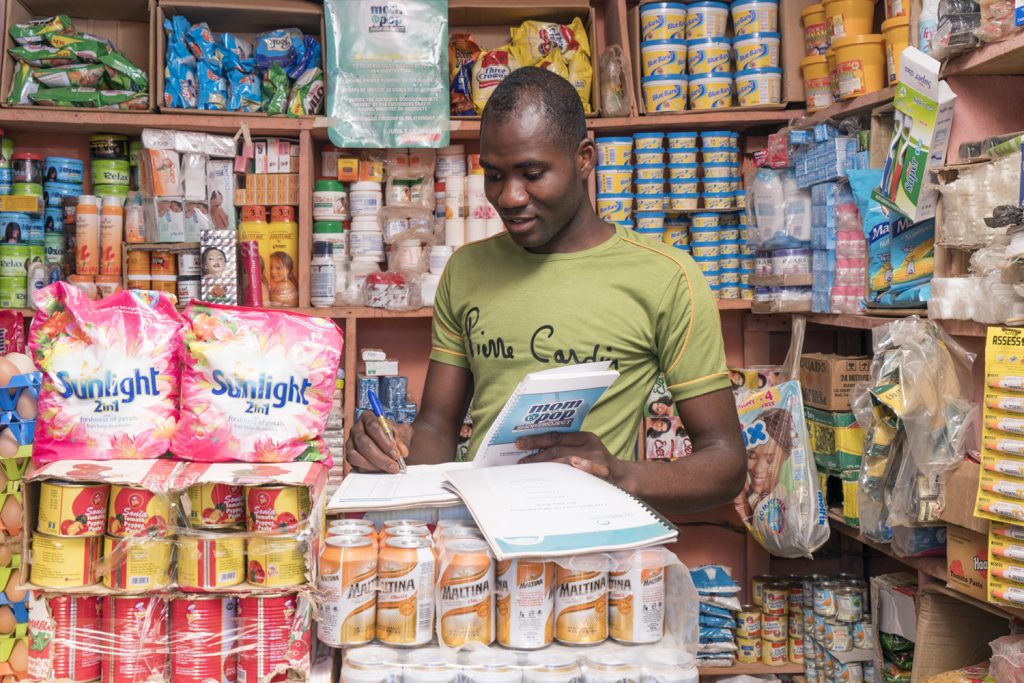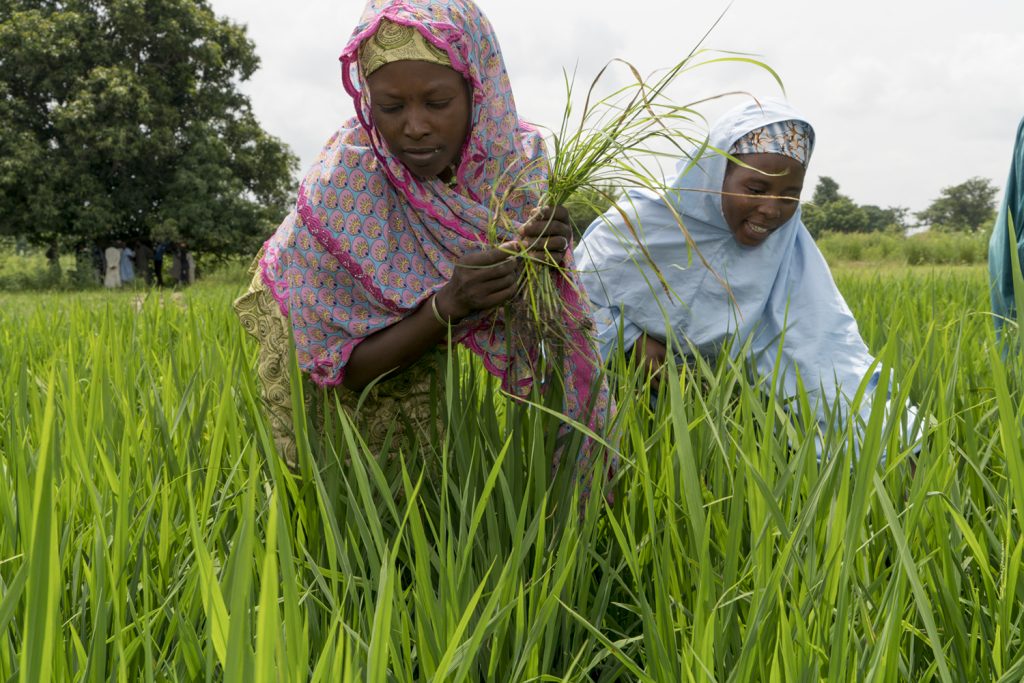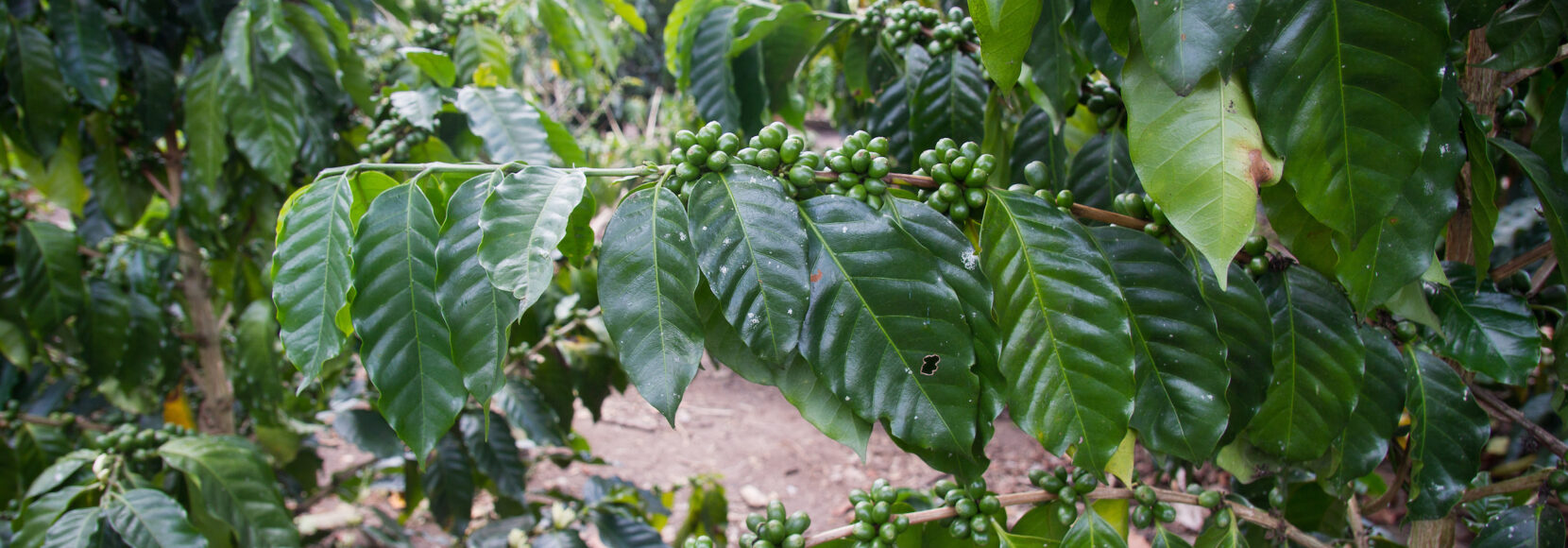
Meet Segun Aganga, the Newest Member of TechnoServe’s Board of Directors
Segun Aganga recently joined TechnoServe’s Board of Directors after a long career in financial services, investment banking, and the public sector. In this Q&A, he discusses his career path and his thoughts on eliminating global poverty.
Segun Aganga is a recognized leader in the finance and business community and has held senior positions in the Nigerian government and the private sector in the United Kingdom. We were honored to have him join TechnoServe’s Board of Directors in 2023.
Segun brings decades of experience supporting economic growth in Africa and around the globe. In June, he published a new book titled “Reclaiming the Jewel of Africa: A Blueprint for Taking Nigeria and Africa from Potential to Posterity.” The book provides practical and pragmatic insights into achieving effective economic growth in Nigeria and Africa more broadly.
In this Q&A, Segun discusses his career trajectory, why he joined the TechnoServe Board, and the most promising solutions to address poverty at scale.

For me, addressing the issue of poverty is not a gesture of charity; it’s an act of justice. We’re talking about the need to preserve human dignity and the well-being of individuals and communities.”
– Segun Aganga
Q: Can you share with us your career trajectory and how these experiences shaped your view of poverty?
A: I’m an accountant by profession. I started my career at Ernst & Young in London, where I worked for 15 or 20 years. Then I moved to Goldman Sachs, where I worked as a managing director in London. In 2010, I was invited back to Nigeria to become the Minister of Finance and the Chairman of the Economic Management Team. I later became the Minister of Industry, Trade, and Investment.
During my time in government, I had the privilege and honor of serving as chairman of the World Bank and the International Monetary Fund from 2010 to 2011. I also chaired the World Trade Organization Ministerial Conference in 2013. Today, I serve on several boards and advise various countries.
I’m from Nigeria originally – a country that still has high levels of poverty. For me, addressing the issue of poverty is not a gesture of charity; it’s an act of justice. We’re talking about the need to preserve human dignity and the well-being of individuals and communities. This view has always informed my decision to join or work with organizations like TechnoServe, which have a long and admirable track record of addressing poverty.
Poverty anywhere is insecurity everywhere. We must take every opportunity to break the cycle of poverty.

Q: What made you decide to join TechnoServe’s Board of Directors?
A: In the private sector, I saw many companies running and funding programs to eradicate poverty. When I was in government, I also saw many multilateral and development institutions wanting to do something about poverty. For example, the World Bank wants poverty to end by 2030. We had the Millennium Development Goals (MDGs), which were eventually replaced by the Sustainable Development Goals (SDGs). The MDGs and the SDGs prioritized the eradication of extreme poverty and hunger.
Most solutions or interventions to eradicate poverty do not break the cycle of poverty or address its root causes. While they do provide temporary solutions, these solutions are often unsustainable. Without effectively addressing the root causes, more and more people will experience poverty.
TechnoServe is one organization that has developed and successfully implemented business solutions that have removed thousands of people from poverty every year in a sustainable way. That is one of the things that attracted me to TechnoServe. The second thing is that TechnoServe is the best at what they do. And you want to be with the best or one of the best in the world because you can make a more meaningful impact.
The World Bank predicts that by 2030 nine out of 10 extremely poor people will be from sub-Saharan Africa. Extreme poverty is characterized as living off of less than $1.90 per day. Anyone who is addressing the issue of poverty and is not working in Africa is not fully addressing the issue of poverty. If nine out of 10 people will come from sub-Saharan Africa, you must be aligned with a company that does a lot of work in that region. TechnoServe is not only the best in what they do but also has an effective presence and programs in that region.
Q: You spoke about the importance of breaking the cycle of poverty. What are the most promising solutions today to break that cycle and reduce poverty at scale?
A: Getting financing from governments is essential, but it’s not always easy to work with them. Suppose you want to scale up and truly address the issue of poverty. In that case, you can only do that by working with multilateral institutions or development institutions like the World Bank and collaborating with different countries. You also need to address the causes of poverty, and that’s where thought leadership comes in.
Now, most countries still need to improve their implementation capacity. They know what they need to do but lack the technical know-how to do it. And most of them need more discipline to rigorously implement the same program over several years to get the desired outcome. There’s a lack of continuity.
Organizations like TechnoServe are very strong in these areas. They have the technical know-how and discipline to do their work. And when they work with the government, they have the opportunity to scale up.

Q: Much of your career has focused on finance and trade in Africa. What opportunities do you see for private sector investment to support sustainable development in Africa?
A: Governments in Africa want to reduce poverty. They understand that the quickest way to do this is through agriculture. However, turning subsistence farmers into small commercial farmers can be challenging. TechnoServe has had experience working with most of those farmers for decades. They have legacy knowledge, which can be turned into policies.
So it’s not only about helping the cocoa or cashew nut farmer manage and sell their crops. TechnoServe can be involved by helping governments establish robust and credible commodity exchanges.
When I was Minister of Industry, Trade, and Investment, one of the 17 agencies that reported to me was the Nigerian Commodity Exchange. I could see the opportunity there. I even went to Ethiopia to see an exchange developed to support coffee farmers and the impact it was having on the lives of the farmers.
When you have an effective commodities exchange, it helps set standards. Farmers can focus on the quality of their products and earn more income. It also allows them to access the market more easily, improving their cash flows and ensuring they are paid commercial prices for their products.
I see ample opportunities to make a huge difference in Africa, which is one of the reasons I joined TechnoServe. It’s a matter of taking those opportunities and turning them around so everyone is happy. It becomes a win-win situation for TechnoServe, the various countries, and the development institutions involved.
Q: Tell us a little bit about your interests outside of your role on the Board of Directors.
A: In addition to playing with my grandchildren, which is a very important aspect of my life, I enjoy musicals and watching football. I support Arsenal in the United Kingdom. I also enjoy seeing and reading about development. I’m always reading about how to make change and how to transform societies and individuals.





